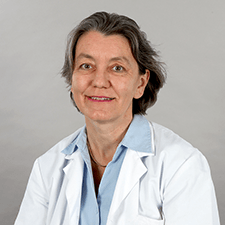Phoniatrics and Speech Pathology
In der Arbeitsgruppe Phoniatrie und Klinische Logopädie arbeiten Fachleute der Disziplinen Phoniatrie und Otorhinolaryngologie, Biomedizinische Wissenschaften und Klinische Logopädie interdisziplinär an verbesserten Möglichkeiten der klinischen Diagnostik und Therapie von Patienten mit Schluck- und Stimmstörungen.
Überblick
Schwerpunkte in der angewandten Forschung sind die Erprobung und Validierung symptomspezifischer Fragebögen und die Untersuchung von Behandlungseffekten bei Patienten mit Schluck- und Stimmstörungen. Wir betreuen akademische Qualifikationsarbeiten in der Medizin, Biomedizinischen Wissenschaften, Logopädie, Patholinguistik und Physiotherapie.
Publikationsliste anzeigenProjekte
N. Klotz, Lei He, J. Bohlender, M. Brockmann-Bauser
Instrumental acoustic and electroglottographic analysis techniques have been recommended for standard voice diagnostics to objectively detect and rate voice dysfunction. However, the currently recommended acoustic measures including jitter, shimmer, HNR and CPPS significantly improve in phonations with higher voice sound pressure level (SPL) in both healthy and disordered voices. This minimizes the diagnostic accuracy and usefulness of these measures when applying current standards in clinical assessments.
The observed changes in louder phonations have been explained with different vocal fold tonus and closure patterns. However, to date this has not been conclusively investigated under uninfluenced phonatory conditions. Electroglottographic (EGG) assessments provide a non-invasive examination of vocal fold movements and functionality. Recent signal analysis innovations facilitate the modelling and categorization of EGG waveform types in relation to voice fundamental frequency and SPL. Therefore, main aim of the present work is to investigate changes in the electroglottographic waveform in different loudness conditions and vowels in healthy and pathologic voices, and to compare these results to standard diagnostic acoustic and electroglottographic indices. Further, it will be assessed, if voice pathology recognition is improved, when EGG assessment results are controlled for speaking voice SPL.
L. Stappenbeck, S. Bartel, J. Bohlender, M. Brockmann-Bauser
Vocal fatigue has been described as a common complaint in patients with voice disorders. Main aim of this prospective study is to assess the validity and retest reliability of the first German version of the Vocal Fatigue Index (VFI), an English questionnaire developed for voice patients to assess potential symptoms of vocal fatigue.
Kooperationspartner
- Fudan University, Institute of Modern Languages and Linguistics, Shanghai, Volksrepublik China, Prof. Dr. L. He
- Pädagogische Hochschule Weingarten, University of Education, Lehrstuhl für Logopädie und Sprachtherapie, Prof. Dr. M. Brockmann-Bauser
- University of Zurich, Institute for Computerlinguistics, Zurich, Switzerland, Dr. Lei He


